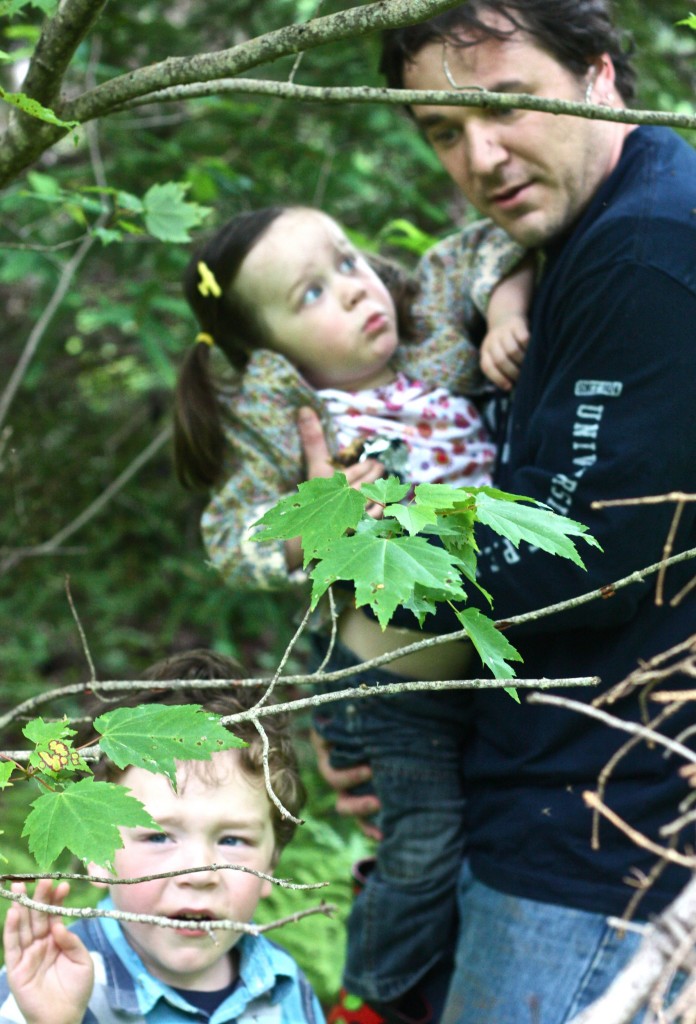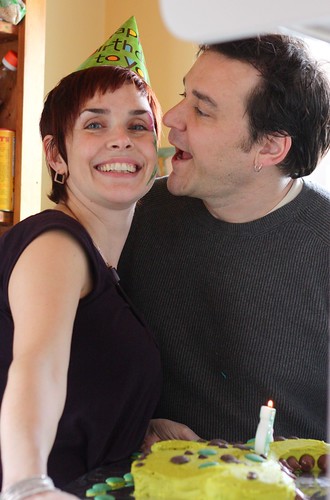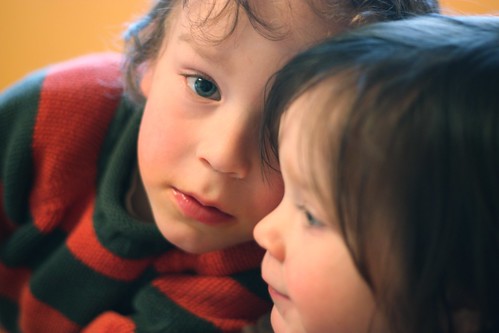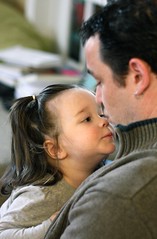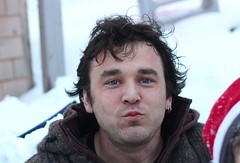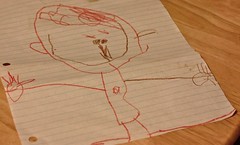And death shall have no dominion.
No more may gulls cry at their ears
Or waves break loud on the seashores;
Where blew a flower may a flower no more
Lift its head to the blows of the rain;
Though they be mad and dead as nails,
Heads of the characters hammer through daisies;
Break in the sun till the sun breaks down,
And death shall have no dominion.
– Dylan Thomas
hello, handsome.
no response. none expected.
i knelt near his feet, cradled bandaged limbs. one first responder pumped hard and breathless in the steady, rib-cracking rhythm of CPR. another held a bag of IV fluids high, over an arm that had clearly not given up its veins with any ease. he was tubed and bagged, and had a four-day shadow of silver growth on his chin, in some ways a far more painful signal of infirmity than all the unfolding drama. he was an old soldier. until these last months, no hint of a whisker had ever managed to wave its flag from his face without being immediately mowed down.
he did not move and i sighed deep and nodded. tender, i spoke. hard day, eh, old fella?
the paramedic’s head swiveled involuntary. i winked and smiled, but my smile was for my grandfather. i met the medic’s eye.
the younger attendant gently pulled me aside. medical history: i was the only family who happened to be there. an ‘end of life situation’, he called it: they would be calling the doctor presently. i nodded.
can i go to him? yes.
***
i am a partial witness. this is what i know.
he was born on a farm on the 19th of December, 1919. he had two younger brothers, both of whom predeceased him by decades, and a horse named Topsy who presumably did the same. his formal education culminated in a one-room schoolteacher who was barely older than he was. he had a finely attuned understanding of authority: Miss Flossie whacked him with the dictionary whenever he got out of line.
he served and was forged – like so many of his generation – in the crucible of the Second World War. unlike most of the rest, he could accept almost no acknowledgement of his service until fifty years after war’s end, when the spywork of British Security Coordination was declassified.
he had stories of Churchill and of Molotov, whom he drank beer with, though never cocktails. he had stories of the man called Intrepid, who was his boss, and of Ian Fleming, with whom he trained at the top-secret Camp X.
when Camp X closed in 1949, my grandfather was offered a position with the CIA. my grandmother wanted to go home instead. so they moved back to PEI, and he became a mechanic, a fire chief, a working-class suburban father. he fixed airplanes, cars, anything that moved. he went to work every day until he turned ninety.
she died twenty-three years ago. i don’t know that he ever stopped grieving her, but he had himself a second childhood when she went. he was a soul in need of other people, and so he found them. he connected. he made friends, kept busy, went dancing, stayed young. he had a wider social circle than i do.
when the heart attack last year cut off his ability to do, i feared for him. his identity was one based in activity, and i did not think he would brook the loss. yet he did. he made friends with his home care nurse, had her move in back in the winter when he was no longer okay spending the night alone. he made his own decisions, and in the end he spent his last days graciously in his chair, his throne. i would not have bet. i was glad, glad to be wrong.
he smoked cigars, so faithfully til near the end that i am tempted to give them out at the funeral. there was a pipe, too, once upon a time, but it faded away where the cigars remained. only in the last weeks did he leave them behind. when i put my head in his hair the last time, at the hospital with the winding sheet pulled to his chin, there was no smoky Old Spice redolence and my brain reeled and searched and recognized, for the first time, what it might mean to have him gone.
radio silence. unfathomable. he was too big for silence. he was a character.
when i went to DC last month for the first time, i asked him, hey, you ever been there? he nodded. nice city. i spent a week out of every four there for awhile, in the war. when he was stationed in New York, out of BSC’s Rockefeller Centre offices.
i cocked my head. doing what?
stuff, he replied, ever coy.
one time, i got on the train to go down and the door opened and Stettinius – he was the Secretary of State – walked in. sat down. big strapping fella. i’m all ready to get to work when he says, “let’s cut to the chase. whaddaya say we sort out the important things here? where are the good-looking WOMEN?”
that was my grandfather, ever able to turn a story. he chortled. i held his hand and smiled at him. sly old coot, i said, because i knew he had told me nothing. he straightened, proud.
he was my living history book, from the time i was a child. but most of the real stories died with him, his oath of secrecy unbroken.
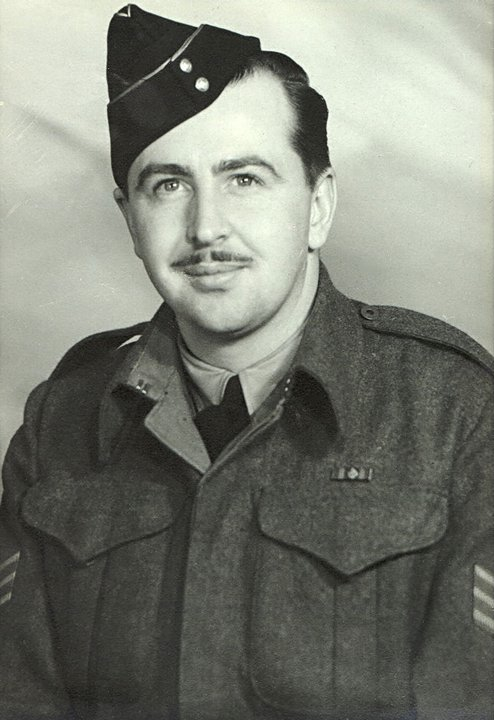
you don’t need me to tell you this. it is in the paper, on the CBC. TV cameras came to my house today. he is famous in death, “the spy from PEI,” and i smile, because i imagine him blushing, embarrassed but pleased. my ex-husband writes from across the country to tell me he heard it on national radio. i am amazed.
what is left for me to tell? my grandfather’s story was always bigger than me. he belonged to a hundred people, a born charismatic in his own faux-curmudgeonly way. he was fierce, and funny, tenacious and flawed. he was exceedingly human. he was loved.
perhaps we hundred will tell our parts of the tale, as the days and years unfold. one time, my friend Cliff… or i knew this fellow…god, he made me laugh. maybe. perhaps that is what he leaves, in the end…a hundred stories. a hundred friends, of all ages. in our words he will hammer through daisies.
we are what remains now, each of us with our piece.
***
this is mine.
can i go to him? yes.
i picked my way across the trauma scene and crouched and took his head in my hands, stroked the silky salt-and-pepper of his hair. i put my forehead to his, and whispered a stream of a dozen things, a hundred things, a lifetime of things into the void of his eyes, the colour of my own.
he could not see me by then, i do not think. but maybe he could hear.
there is no way to speak for the hundred, in the end. it was me. i did the best i could.
i love you. we all love you. thank you, for teaching me to waterski. for your kindness to my children. for the ice cream cake you brought that first Mother’s Day when we buried Finn’s ashes under the trees in the backyard. for being the only one to say to me, aloud, and angry, that it wasn’t fair.
thank you, for telling me i was pretty, when i was seventeen and no one ever had.
thank you, for teaching me all the words to Colonel Bogey. for teaching me that a person can remain a big kid to the end.
thank you, for being a friend, to so many. you did so good. you were good.
it is okay. don’t be afraid.
for a moment his heart jumped like a salmon in his bare chest and they hung up on the doctor who was declaring him gone; called a second ambulance. i moved out of the way, held the IV bag, watched warily.
i am only a partial witness; i did not get to be there for the rest. they took him out of his house for the last time. my hand snaked in to pet his hair as they rolled him to the ambulance.
goodbye, handsome.
his death notice says he died at home; he never made it to the hospital. it is a narrative choice, the one i think he would have wanted. it was him who taught me how to tell a story.
***
(here is the post-script: it does not feel finished.
a friend said to me this weekend, when the tall trees fall from the horizon, however expected, it’s disorienting.
i look to the horizon for a gesture, the upturned hand punctuating a story, the wry smile. i blink, bewildered.
he was my last grandparent, one of the tall trees of my life. i was lucky. i am grateful. )
